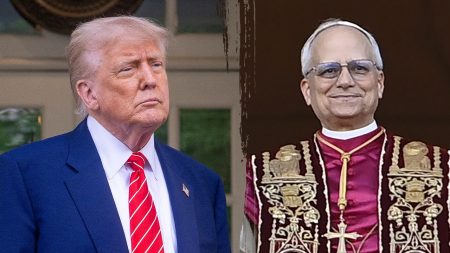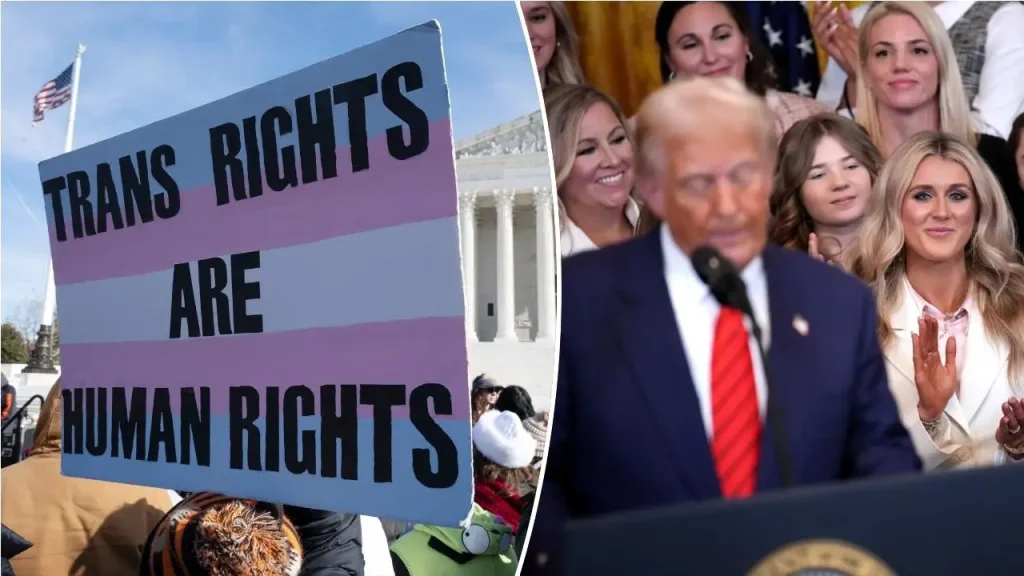A recent survey conducted by the American Principles Project (APP) reveals significant voter opposition to taxpayer-funded gender transition surgeries, a contentious issue that has implications for the Democratic Party’s future electoral strategy. The survey targeted likely midterm voters and found that even among those who previously supported Vice President Kamala Harris, there is substantial resistance to allocating government funds for gender identity healthcare services. This occurs amidst ongoing national debates regarding the funding of such procedures and the broader implications for political campaigns as the 2024 elections draw nearer.
| Article Subheadings |
|---|
| 1) Survey Overview and Findings |
| 2) Implications for the Democratic Party |
| 3) Historical Context of Gender Issues in Politics |
| 4) The Role of Trump and the Republican Narrative |
| 5) Future Perspectives on Gender Transition Funding |
Survey Overview and Findings
The American Principles Project recently conducted a survey in early April 2024, targeting a sample of 1,500 likely voters across the country to gauge their attitudes towards government funding for gender transition surgeries and treatments. The results revealed that a notable 66% of Americans opposed the use of taxpayer dollars to finance gender transition procedures, which include surgeries as well as hormone treatments and puberty blockers. This percentage is strikingly high, illustrating a pervasive skepticism among the general public regarding the appropriateness of government-funded healthcare in this sensitive area.
Interestingly, the survey also highlighted that 43% of respondents who voted for Kamala Harris in the previous election expressed their disapproval of taxpayer-funded gender transition surgeries. This finding is particularly significant as it suggests that even traditional Democratic constituents are divided on what has become a polarizing topic. Given that healthcare issues have typically garnered bipartisan support, the growing opposition among voters signals a potential shift in how these topics may influence future elections.
Implications for the Democratic Party
The results of the APP survey indicate troubling implications for the Democratic Party as it prepares for the 2024 elections. The party may find itself in a precarious position, having to navigate a delicate balance between the interests of its progressive base – which largely supports the funding of gender transition procedures – and the growing concerns of moderate and conservative voters who oppose such expenditures. The party’s leadership may need to reconsider their stance on various social issues in light of these findings, ensuring that they do not alienate potential swing voters.
According to Terry Schilling, the executive director of APP, the current Democratic position, which leans towards supporting gender transition funding, may not resonate well with a broader audience. Schilling pointed out, “The higher ups, like the elected officials in the Democratic Party, are going the other way, and it’s not going to work out well for them,” insinuating that this divergence from voter sentiment could lead to significant electoral consequences. Such dynamics highlight the necessity for the Democratic Party to engage in introspection regarding their advocacy for gender transition funding and how it may reflect in the upcoming elections, particularly when voters feel their tax money is being misappropriated.
Historical Context of Gender Issues in Politics
The historical backdrop of gender issues as they relate to politics provides essential context to the current survey findings. In recent years, public discourse surrounding gender identity, including gender transition surgeries and treatments, has gained immense prominence and polarization. With various government administrations attempting to shape policy and public opinion regarding these matters, gender and sexuality advocacy has played an increasingly central role in political platforms.
Under the Obama administration, for instance, significant strides were made in terms of affirming transgender rights. However, the tide shifted under the Trump administration, which took decisive actions to restrict federal funding for gender transition surgeries, particularly for minors. This shift has sparked ongoing debates and legal battles across multiple states, engaging voters and activists alike.
Moreover, the political landscape continues to evolve with pivotal cases and legislations being introduced at both state and federal levels. These developments have kept the electorate divided, with more people beginning to reconsider their previously held positions on gender transition funding. This ongoing debate illustrates how deeply gender issues in politics have intertwined with broader social values and how they will continue to shape the political landscape going forward.
The Role of Trump and the Republican Narrative
The survey results reflected broader trends indicative of a notable shift towards Republican sentiments among voters regarding gender transition funding, largely attributed to the efforts of former President Donald Trump. Since assuming office, Trump has openly condemned “radical gender ideology” and taken legislative actions to eliminate federal funding for gender transition surgeries. His administration emphasized traditional gender identities and pursued policies that restrict certain rights for transgender individuals, particularly in contexts like sports and military service.
As Schilling indicated, Trump’s vocal criticisms and campaign messaging may have helped draw previously undecided or moderate voters to the Republican side on issues related to gender transition. Notably, his campaigns often leveraged targeted advertising to highlight the controversial aspects associated with Democratic policies regarding transgender issues. During Trump’s re-election campaign, for instance, ads were designed to question the wisdom of allowing federal funding for gender transition procedures, framing opponents’ policies as out of touch with mainstream voter sentiment.
This strategic approach not only contributed to a shift in perceptions regarding gender issues but also played a significant role in galvanizing voter sentiments against the existing Democratic narrative, indicating a potential vulnerability in the party’s outreach strategy as it heads into the 2024 elections. As voters continue to grapple with complex feelings concerning gender identity and associated funding, it remains to be seen how these dynamic shifts will manifest in the political arena.
Future Perspectives on Gender Transition Funding
Where the conversation goes from here regarding gender transition funding is uncertain, yet it undoubtedly remains a contentious issue that will shape upcoming electoral contests. The APP survey illustrates a growing dissatisfaction among the populace concerning the use of taxpayer funds for gender transition procedures, signaling an opportunity for candidates to strategize on this matter effectively. Voter priorities often reflect broader trends, and as public opinion evolves, both major parties will need to adapt their platforms accordingly.
Failure to recognize these shifts could lead to potential repercussions at the ballot box. Voters may increasingly demand transparency and accountability when it comes to how their tax dollars are spent, reflecting concerns about the alignment of government policies with community values. Therefore, candidates aiming to secure a win in the next electoral cycle must navigate the treacherous terrain of public sentiment while remaining responsive to fundamental concerns about funding gender transition surgeries with taxpayer money.
Moreover, the implications extend beyond mere party politics; in addition to impacting electoral dynamics, these issues raise significant moral and ethical questions regarding healthcare access and the role of government in personal health decisions. As societal discussions continue, finding common ground will be critical, emphasizing a need for ongoing dialogue to ensure nuanced perspectives on gender transitions are adequately considered.
| No. | Key Points |
|---|---|
| 1 | 66% of Americans oppose taxpayer funding for gender transition surgeries, according to a recent survey. |
| 2 | 43% of Harris voters oppose government funding for gender transition procedures. |
| 3 | Democratic leaders are facing pressure to align with moderate voters on social issues. |
| 4 | Trump’s administration targeted gender transition funding policies, spurring shifts in voter sentiment. |
| 5 | The future of gender transition funding in politics remains contentious and evolving. |
Summary
The findings from the American Principles Project survey signify a noteworthy shift in public opinion regarding taxpayer funding for gender transition surgeries, posing challenges for the Democratic Party as it approaches the 2024 elections. With measurable voter discontent surrounding this issue, candidates across the political spectrum must navigate these complex sentiments to resonate with a diverse electorate. Hence, how these dynamics unfold will be pivotal for both parties as they approach future electoral contests.
Frequently Asked Questions
Question: What does the survey by the American Principles Project indicate about public opinion on gender transition funding?
The survey reveals that a significant majority of Americans, 66%, are opposed to using taxpayer dollars for gender transition surgeries and related treatments, indicating a divide in public sentiment on this issue.
Question: How have Democratic voters responded to gender transition funding proposals?
The survey shows that even among those Democratic voters who supported Kamala Harris in the last election, 43% are against funding gender transition procedures with taxpayer money, suggesting internal disagreement within the party on this policy.
Question: What role has former President Trump played in shaping the debate around transgender issues?
Former President Donald Trump has been a vocal critic of federally funded gender transition surgeries, influencing public opinion and shifting some moderate voters towards Republican stances on these issues.





